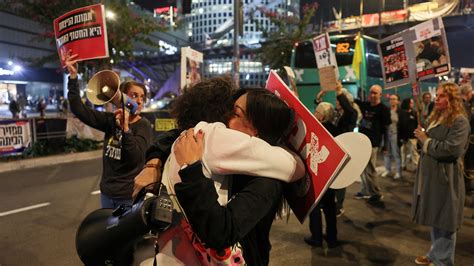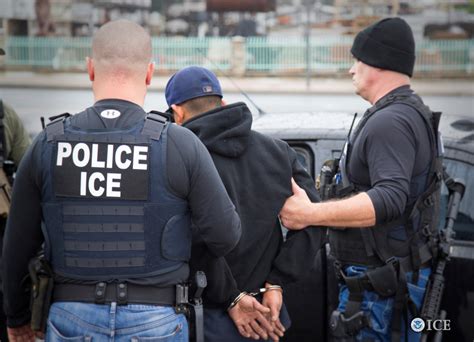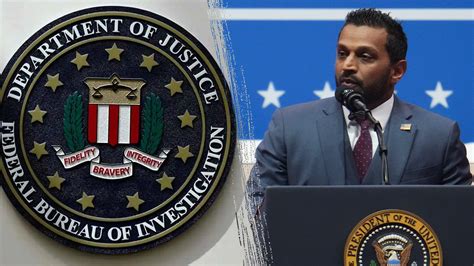
Israel has presented Hamas with a new proposal for a hostage deal that includes a ceasefire in Gaza, according to an Israeli official. The proposal, delivered through Qatari mediators, is being called a “generous offer” and seeks to break the deadlock in negotiations aimed at securing the release of hostages held in Gaza since the October 7th attack.
An Israeli official, speaking on condition of anonymity, confirmed that the proposal addresses Hamas’ key demands, including a potential cessation of hostilities, though the specifics of the ceasefire duration remain under negotiation. The official emphasized that this offer represents a significant effort by Israel to reach an agreement and bring the hostages home. “This is a crucial moment,” the official stated, urging Hamas to respond constructively to the proposal. The details of the offer have not been publicly disclosed in full but are believed to involve a phased release of hostages in exchange for Palestinian prisoners held in Israeli jails.
The proposal comes after months of stalled negotiations and increasing international pressure on both sides to reach a resolution. The families of the hostages have been increasingly vocal in their demands for the Israeli government to do everything possible to secure their release. Simultaneously, the humanitarian situation in Gaza continues to deteriorate, adding urgency to the need for a ceasefire.
The key sticking points in previous negotiations have revolved around the duration and scope of any ceasefire, the number and identities of Palestinian prisoners to be released, and guarantees regarding the long-term security of Gaza. Hamas has consistently demanded a permanent end to the conflict and the withdrawal of Israeli forces from Gaza, while Israel has insisted on its right to defend itself and prevent future attacks.
The current proposal is seen as a compromise that attempts to bridge these gaps. While details remain scarce, reports suggest that it includes a phased approach, with an initial period of reduced fighting followed by a more comprehensive cessation of hostilities if the first phase is successful. The number of Palestinian prisoners to be released is also believed to be substantial, though the exact figures and criteria are still under negotiation.
The response from Hamas remains to be seen. Senior Hamas officials have stated that they are reviewing the proposal and will provide a response in due course. They have reiterated their demands for a permanent ceasefire, the withdrawal of Israeli forces, and the release of all Palestinian prisoners.
The outcome of these negotiations will have profound implications for the future of Gaza and the wider region. A successful agreement could lead to a period of relative calm and pave the way for a more comprehensive peace process. Failure, on the other hand, could result in a further escalation of violence and prolong the suffering of both Israelis and Palestinians.
Background to the Conflict and Hostage Crisis
The current conflict between Israel and Hamas is rooted in decades of political and territorial disputes. Hamas, a Palestinian Islamist organization, has controlled the Gaza Strip since 2007 after winning the 2006 Palestinian elections and subsequently ousting the Fatah-led Palestinian Authority. Israel has maintained a blockade of Gaza since then, citing security concerns. This blockade, along with periodic military operations, has had a devastating impact on the Gazan economy and humanitarian situation.
On October 7, 2023, Hamas launched a large-scale attack on Israel, breaching the border fence and infiltrating Israeli communities. The attack resulted in the deaths of approximately 1,200 Israelis, mostly civilians, and the abduction of over 240 people who were taken back to Gaza as hostages. The attack triggered a massive Israeli military response, with airstrikes and ground operations targeting Hamas infrastructure and personnel in Gaza.
The Israeli military campaign has resulted in widespread destruction and a high number of casualties in Gaza. According to the Hamas-run health ministry, over 34,000 Palestinians have been killed in the conflict, the majority of whom are women and children. The United Nations and other international organizations have warned of a humanitarian catastrophe in Gaza, with widespread shortages of food, water, medicine, and shelter.
Previous Attempts at Negotiation
Since the start of the conflict, there have been several attempts to negotiate a ceasefire and secure the release of the hostages. Qatar, Egypt, and the United States have all played key roles in mediating between Israel and Hamas. In November 2023, a temporary ceasefire was brokered, which resulted in the release of over 100 hostages in exchange for Palestinian prisoners. However, that ceasefire collapsed after a week, and fighting resumed.
The main obstacles to reaching a long-term agreement have been the deep-seated mistrust between the two sides, the differing objectives of Israel and Hamas, and the complex political dynamics in the region. Israel has insisted on the complete dismantling of Hamas’ military capabilities and guarantees that Gaza will no longer be used as a base for attacks against Israel. Hamas, on the other hand, has demanded a permanent end to the Israeli occupation of Palestinian territories and the lifting of the blockade of Gaza.
International Pressure and Involvement
The international community has been actively involved in efforts to resolve the conflict and secure the release of the hostages. The United Nations has repeatedly called for a ceasefire and for both sides to respect international law. The United States, a close ally of Israel, has also urged restraint and has been working behind the scenes to facilitate negotiations.
However, international pressure has had limited success in bringing the two sides to the negotiating table. Israel has faced criticism for its military operations in Gaza, while Hamas has been condemned for its attacks on Israeli civilians and its use of human shields.
The Potential Implications of the Current Proposal
The current proposal represents a potentially significant step forward in the negotiations. If accepted by both sides, it could lead to a cessation of hostilities and the release of the hostages, alleviating the suffering of both Israelis and Palestinians. However, the road ahead is fraught with challenges.
The success of the proposal will depend on several factors, including the willingness of both sides to compromise, the ability of the mediators to bridge the gaps between their positions, and the overall political climate in the region. Even if an agreement is reached, it is likely to be fragile and subject to setbacks.
A lasting peace will require a more comprehensive solution that addresses the underlying causes of the conflict and provides a framework for a just and sustainable future for both Israelis and Palestinians. This will involve difficult negotiations on issues such as borders, refugees, and the status of Jerusalem.
Expert Commentary
“This proposal is a crucial test of Hamas’ willingness to engage constructively in negotiations,” said Dr. Maya Stern, a Middle East analyst at the Institute for National Security Studies in Tel Aviv. “If they reject it outright, it will be a clear indication that they are not serious about reaching a resolution.”
“The Israeli government is under intense pressure from the families of the hostages and from the international community to secure their release,” said Dr. Khaled Elgindy, a senior fellow at the Middle East Institute in Washington. “This proposal is an attempt to address those concerns, but it remains to be seen whether it will be enough to satisfy Hamas.”
The Humanitarian Crisis in Gaza
The ongoing conflict has exacerbated the already dire humanitarian situation in Gaza. The United Nations estimates that over two million people in Gaza are in need of humanitarian assistance. The blockade imposed by Israel has severely restricted the flow of goods and people into and out of Gaza, leading to shortages of essential supplies.
The fighting has also damaged critical infrastructure, including hospitals, schools, and water and sanitation facilities. This has further compounded the humanitarian crisis and made it more difficult to provide assistance to those in need.
International organizations have called for an immediate end to the fighting and for unimpeded access for humanitarian aid to Gaza. However, the security situation has made it difficult to deliver assistance safely and effectively.
The Families of the Hostages
The families of the hostages have been at the forefront of the campaign to secure their release. They have held protests, met with government officials, and appealed to the international community for help.
Their stories have highlighted the human cost of the conflict and the urgent need for a resolution. Many of the hostages are elderly, sick, or injured, and their families fear for their well-being.
The families have called on both sides to show compassion and to do everything possible to bring their loved ones home. They have emphasized that the release of the hostages should be a top priority for both Israel and Hamas.
The Political Context in Israel
The Israeli government is facing intense pressure to secure the release of the hostages while also pursuing its military objectives in Gaza. The government is divided on the best way to achieve these goals, with some advocating for a more aggressive military approach and others favoring a negotiated solution.
The political situation in Israel is further complicated by the ongoing corruption trial of Prime Minister Benjamin Netanyahu and the deep divisions within Israeli society.
The government’s handling of the hostage crisis has been criticized by some, who argue that it has not done enough to prioritize the release of the hostages. Others have defended the government’s actions, arguing that it is doing everything possible to secure their release while also protecting Israel’s security interests.
The Political Context in Gaza
Hamas is facing its own set of challenges in Gaza. The organization is under intense military pressure from Israel and is struggling to govern the Gaza Strip in the face of a humanitarian crisis.
Hamas’ leadership is divided on the best way to respond to the Israeli offensive, with some advocating for a ceasefire and others calling for continued resistance.
Hamas’ legitimacy has also been challenged by the ongoing economic hardship and the high number of casualties in Gaza.
The Role of Qatar
Qatar has played a key role in mediating between Israel and Hamas. The country has close ties to both sides and has used its influence to facilitate negotiations.
Qatar has also provided significant financial assistance to Gaza, which has helped to alleviate the humanitarian crisis.
Qatar’s role as a mediator has been praised by some, who see it as a neutral and reliable partner. However, others have criticized Qatar for its support of Hamas, which they see as undermining efforts to reach a lasting peace.
The Future of Gaza
The future of Gaza remains uncertain. Even if a ceasefire is reached, the underlying causes of the conflict will still need to be addressed.
A lasting peace will require a comprehensive solution that addresses the political, economic, and security needs of both Israelis and Palestinians.
This will involve difficult negotiations on issues such as borders, refugees, and the status of Jerusalem. It will also require a commitment from both sides to end the violence and to build a future based on mutual respect and understanding.
The international community has a vital role to play in supporting these efforts. This will involve providing financial assistance, mediating between the parties, and ensuring that both sides adhere to international law.
The Legal and Ethical Considerations
The conflict between Israel and Hamas raises a number of complex legal and ethical considerations.
Israel’s military operations in Gaza have been criticized for violating international humanitarian law, which prohibits the targeting of civilians and the use of disproportionate force.
Hamas’ attacks on Israeli civilians have also been condemned as violations of international law.
The use of human shields by both sides has also raised ethical concerns.
Frequently Asked Questions (FAQs)
1. What is the main point of the Israeli hostage deal proposal to Hamas?
The main point of the proposal is to secure the release of the hostages held by Hamas in exchange for a ceasefire in Gaza and the release of Palestinian prisoners held in Israeli jails. The proposal, described as “generous” by an Israeli official, aims to break the deadlock in negotiations and alleviate the suffering of both Israelis and Palestinians. According to the unnamed Israeli official quoted by Yahoo News, this offer represents a significant effort by Israel to reach an agreement.
2. What are the key demands of Hamas in the negotiations?
Hamas has consistently demanded a permanent ceasefire, the complete withdrawal of Israeli forces from Gaza, and the release of all Palestinian prisoners held in Israeli jails. They seek guarantees regarding the long-term security of Gaza and an end to the Israeli blockade. Senior Hamas officials have reiterated these demands while reviewing the current proposal.
3. What role have Qatar, Egypt, and the United States played in the negotiations?
Qatar, Egypt, and the United States have acted as key mediators between Israel and Hamas. They have used their diplomatic influence to facilitate negotiations and bridge the gaps between the two sides’ positions. Qatar, in particular, has played a crucial role due to its close ties with both Israel and Hamas. The Israeli official stated that the current proposal was delivered through Qatari mediators.
4. What is the current humanitarian situation in Gaza?
The humanitarian situation in Gaza is dire, with widespread shortages of food, water, medicine, and shelter. The United Nations estimates that over two million people in Gaza are in need of humanitarian assistance. The conflict has damaged critical infrastructure, including hospitals and schools, further compounding the crisis. International organizations have called for unimpeded access for humanitarian aid to Gaza. According to the Hamas-run health ministry, over 34,000 Palestinians have been killed in the conflict.
5. What are the potential implications if the hostage deal proposal fails?
Failure to reach an agreement could result in a further escalation of violence and prolong the suffering of both Israelis and Palestinians. It could also undermine efforts to reach a more comprehensive peace agreement in the future. Continued conflict would exacerbate the humanitarian crisis in Gaza and could lead to further regional instability. Maya Stern from the Institute for National Security Studies in Tel Aviv suggests a rejection by Hamas indicates a lack of seriousness in reaching a resolution.









